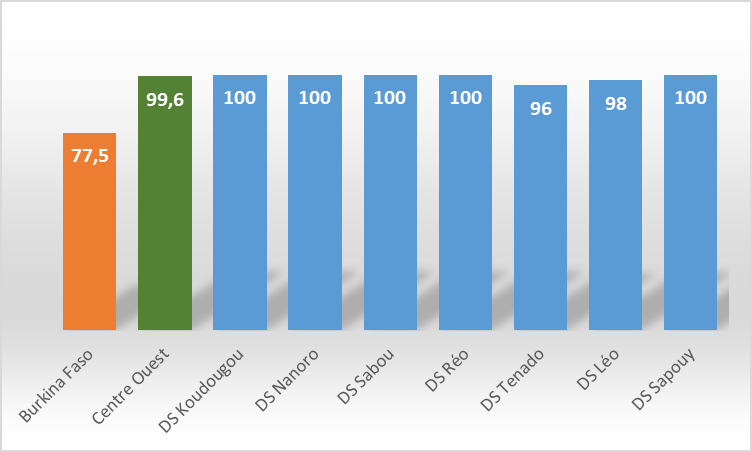Since 2013, Burkina Faso has used DHIS2 for routine data management of the national health information system. The system is referred to as Entrepôt National des Données de la Santé (National Health Data Warehouse), or ENDOS-BF. DHIS2 is currently deployed throughout the country from the national to district level, with monthly data entry carried out by the manager of the Center for Health Information and Epidemiological Surveillance (CISSE) based at each district.
The use of DHIS2 revolutionized the health information system, enabling access to nearly real-time online data. However, the Regional Director of Health in Center West Region in Burkina Faso, Dr SANA Moussa, recalls the heavy “workload at the level of the [district] health information offices” to enter paper reports from health facilities.

Challenge
Though DHIS2 enables widespread access to data, data quality remains a challenge, especially in terms of completeness, timeliness, and internal consistency. The greater the number of items to be entered, the greater the risk of error—with work overload as a result. The monthly health facility report contains 21 pages and 1,741 items to complete. Thus, at the end of each month, a CISSE manager who oversees 37 health facilities will have over 64,000 items to enter into ENDOS-BF from over 750 report pages. As a result, CISSE managers must prioritize entering data over assessing the quality of the data or conducting analyses to understand performance.
Solution and Process
One proposed solution was to shift responsibility of data entry into ENDOS-BF from the district CISSE to each health facility. This solution is known as decentralization. The Ministry of Health (MOH) conducted a successful pilot of decentralizing data entry in October 2018 in Boromo health district in Boucle du Mouhoun Region and, in May 2019, in Yako health district in North Region.
Building on that successful pilot, the Country Health Information System and Data Use (CHISU) project extended the decentralization of ENDOS-BF to all seven districts of Center West Region. The MOH Statistics Department and CHISU team created accounts in ENDOS-BF and facilitated training on data entry using tablets for all 254 health facilities across all seven districts between September 2021 and March 2022. Head nurses for each facility learned how to complete the monthly activity report, validated and corrected data for their peers, practiced specific measures to improve data quality, and entered their own facility data for the previous month.
Impact
The timeliness of reports in Center West Region improved from 81.9 percent in August 2021 to 99.6 percent in February 2022, greatly exceeding the national timeliness of 77.5 percent in February. Dr SANA concluded that decentralization “makes it possible to significantly minimize errors by reducing the volume of data to be entered per person, but also offers the opportunity to those who are at the forefront of data production to enter them [on ENDOS-BF], which leads them to greater ownership.”
As noted earlier, prior to decentralization of the data entry process, CISSE managers had to prioritize data entry over data quality assessment or analysis due to their heavy workload. Decentralization will allow the CISSE managers more time to focus on the data quality and analysis to understand performance. Moreover, the expected deployment of the DQR will also allow better analysis of the quality of the data.

Download the success story here.